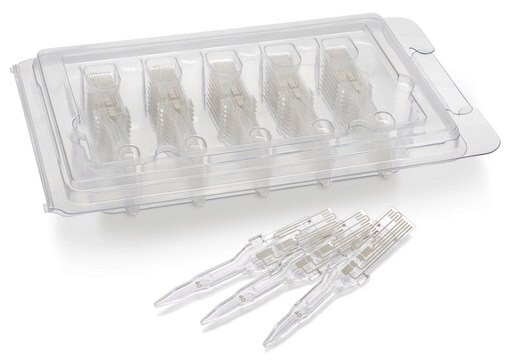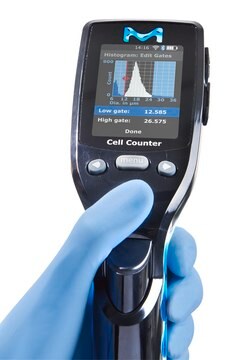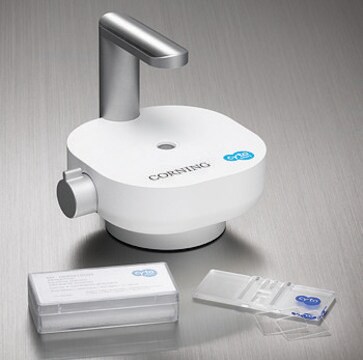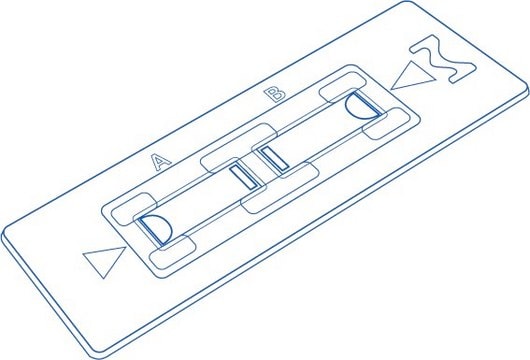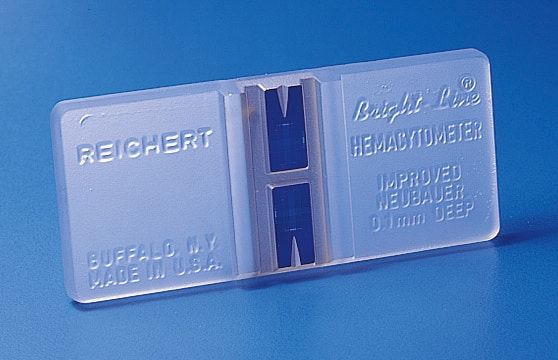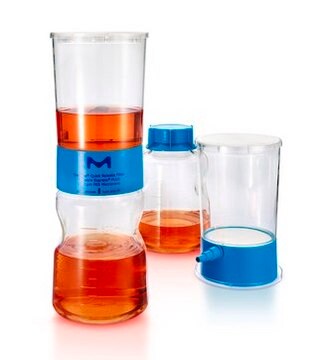PHCC6
Scepter Cell Counter Sensors
60 µm sensors designed to count particles between 6 μm & 36 μm
Synonym(s):
Automated Cell counter tips
About This Item
Recommended Products
manufacturer/tradename
Scepter
parameter
10,000 particles/mL particle concentration (500,000 particles/mL)
50 μL sample volume
technique(s)
cell counting: suitable
particle size
6–36 μm
compatibility
for use with cells sized 8.0–25.0 μm
shipped in
ambient
General description
The Scepter cell counter’s screen displays:
Cell concentration
Average cell size
Average cell volume
Histogram of size or volume distribution
This system is intended for research use only and has been tested with cell types representative of those in use today.
Coupled with precision liquid handling channels and electronics, the Scepter sensor accurately and reliably provides cell population statistics
Application
Cell Culture
Storage Class Code
10-13 - German Storage Class 10 to 13
Certificates of Analysis (COA)
Search for Certificates of Analysis (COA) by entering the products Lot/Batch Number. Lot and Batch Numbers can be found on a product’s label following the words ‘Lot’ or ‘Batch’.
Already Own This Product?
Find documentation for the products that you have recently purchased in the Document Library.
Customers Also Viewed
Articles
How do you assess the state of your cell culture? We’ve got some best practices to share.
Using the 40 µm aperture sensor, the Scepter cell counter can accurately and precisely count a broad range of cell types, including small cells such as PBMC and red blood cells.
Rapid Counting of Somatic Cells in Dairy Milk Using the Scepter™ 2.0 Cell Counter
This article describes the performance of the Scepter™ Cell Counter from Millipore across multiple cell lines.
Protocols
The Scepter™ cell counter uses the Coulter principle of impedance-based particle detection to reliably and accurately count every cell in your sample.
The Scepter used in an application to count yeast cells.
Our team of scientists has experience in all areas of research including Life Science, Material Science, Chemical Synthesis, Chromatography, Analytical and many others.
Contact Technical Service